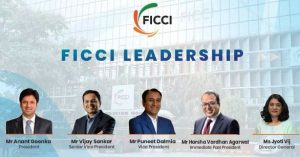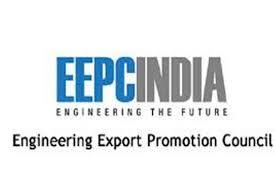Transition from coal and traditional sources to green energy will be possible with the international grid vision of Prime Minister Modi: Shri Goyal
Indian government discussing Carbon Tax mechanism with European countries, the proposed mechanism will not hurt Indian exports: Shri Goyal
India’s energy transition has a very large end-to-end dimension and the government is working towards the goal of meeting the country’s energy need with a clean source. This was stated by Union Minister of Commerce & Industry, Consumer Affairs, Textiles and Food & Public Distribution Shri Piyush Goyal at the ORF’s first edition of the Energy Transition Dialogue in New Delhi today.
Shri Goyal said that for the next 30 years, India is going to see huge amount of growth in the economy and that is going to lead to significant demand for energy in all walks of life and so India’s energy transition has two dimensions: transit from the past consumption levels and what we do to meet the needs of this growth. In the circumstances that we are in, India has been upping its targets on almost every aspect of the energy transition story, by getting clean energy into the system, he said, adding that India is working on many fronts. Citing some examples, Shri Goyal said that India is supporting the production of clean energy equipment and opening to transition to green hydrogen and ammonia. One of the key initiatives of the government has been the production linked incentive programme, which has worked very well, he said, adding that it is a well thought out, well-crafted government policy to promote manufacturing in India. PLI scheme is not only for mobile phones, it’s across several sectors – auto components, speciality skills, technical textiles and so on. In green energy, India has some investments coming in for solar, highly efficient solar PV manufacturing, and in manufacturing green hydrogen, he said.
Shri Goyal pointed out that an important element in energy transition is the transition from coal. He said that alternate and green sources like wind or solar are intermittent sources of power that are not available on a steady state basis, throughout the day, particularly in the peak hours. India’s annual eight 10% growth in power also cannot be made by all the nuclear plants that are made all over the world, he said, adding that the world will have to recognise this very serious challenge of an alternate baseload to coal before they preach to India that we have to look at transiting from the old traditional sources. He pointed out that the vision of Prime Minister Modi for an international power grid is the possible solution that the world is now accepting.
On the issue of Carbon Tax, Shri Goyal said that there’s a reporting requirement that kicked in last month and the carbon border adjustment mechanism will start sometime in 2026. He said that India need not be concerned about it because the government is in dialogue with the European Union and the European countries and their leadership. He said that if the country from which the goods originate taxes carbon at the level at which the European Union taxes their domestic companies, then there will be no additional tax on our exports to those countries. So, if we collect the tax in India itself, there will be no additional tax, he added, saying that India will not have a disadvantage in our exports to Europe, he said.
Speaking on the financing aspect of energy transition, Shri Goyal said that for nations, based on the responsibility metrics, India will have to work out the financing and the availability of technology. Despite supporting 17% of global population, India’s contribution to greenhouse gas emissions or the depletion of the ozone layer is barely two and a half percent. So, we are not the polluters in the first place, he pointed out. And keeping in mind the polluter pays principle, it was expected that the developed countries would go that extra mile by providing very low cost or zero cost long term or funding grant-based funding to encourage the less developed countries and developing world to transition, he said, adding that they’ve let down the whole world.
Shri Goyal pointed out that the developed countries are saying that they are providing finance and are helping us raise finance, but the reality is that the developed countries have only given lip sympathy. The models that they have created are largely around private capital and concessional finance aspect is totally missing, he said. The developed world has a lot to answer to the world’s problems and are entirely responsible for the current state of affairs in the world today, Shri Goyal concluded.
***





